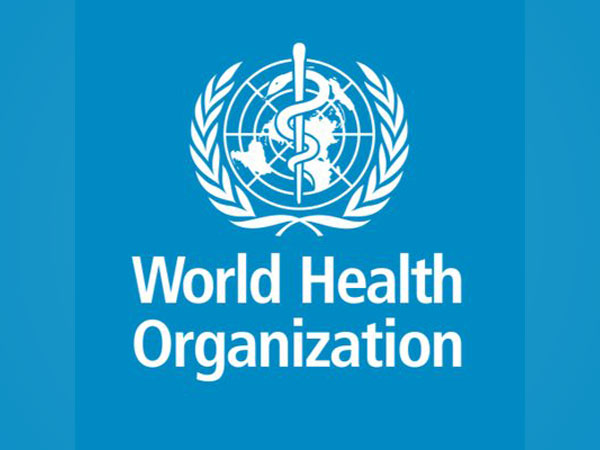Health News Roundup: Global licence deal to provide COVID antibody test tech free to poorer countries - WHO; Swiss reserved up to 8,640 doses of Merck's COVID-19 drug and more
AstraZeneca has supplied two billion doses of its COVID-19 vaccine, developed at Oxford University, and is also looking to bring a preventative antibody cocktail against COVID-19 to market. India logs slimmest rise in COVID-19 cases in 543 days despite festivals India reported 7,579 new coronavirus infections on Tuesday, the smallest rise in one-and-a-half-years despite huge festival gatherings in recent weeks, thanks to rising vaccinations and antibodies from prior infections.

Following is a summary of current health news briefs.
Global licence deal to provide COVID antibody test tech free to poorer countries - WHO
A global licence for serological technology that detects COVID-19 antibodies will be provided royalty-free to poor and middle-income countries under a first of its kind agreement to boost production, the World Health Organisation said on Tuesday.
The existing four tests, which check for the presence of SARS-CoV-2 antibodies developed after either an infection or a vaccine dose, could also inform decisions on the need for boosters to protect against the disease, it said in a statement.
Swiss reserved up to 8,640 doses of Merck's COVID-19 drug
The Swiss government said on Tuesday it had reserved up to 8,640 doses of Merck's COVID-19 drug Molnupiravir. The antiviral Molnupiravir should be available at the latest in January 2022, the government said in a statement, not communicating how much it has agreed to pay for the drug.
Dutch COVID-19 patients transferred to Germany as hospitals struggle
The Netherlands started transporting COVID-19 patients across the border to Germany on Tuesday to ease pressure on Dutch hospitals, which are scaling back regular care to deal with a surge in coronavirus cases. A patient was transferred by ambulance from Rotterdam to a hospital in Bochum, some 240 km (150 miles) east, on Tuesday morning, and another would follow later in the day, health authorities said.
EU kicks off debate on need for booster shots to travel
European Union governments kicked off a debate on Tuesday about how long vaccines are effective against COVID-19 and whether evidence of a booster dose will be required to maintain free travel across the bloc as cases spike. The executive European Commission is due to present a proposal this week to coordinate free movement using COVID-19 passes, after Austria became the first country in western Europe on Monday to reimpose a lockdown since vaccines were rolled out.
Merkel's husband blames Germans' laziness for low vaccination rate
Joachim Sauer, Chancellor Angela Merkel's academic husband, has blamed his compatriots' "laziness and complacency" for Germany's comparatively low vaccination rate, saying public rejection of science has never been as visible as now. Sauer, who until his retirement in 2017 was professor of quantum chemistry at Berlin's Humboldt University and seen as one of the field's top researchers, has been reticent to discuss politics throughout his wife's 16-year tenure.
In U.S. Supreme Court case, the past could be the future on abortion
Just months before she was set to start law school in the summer of 1973, Barbara Phillips was shocked to learn she was pregnant. Then 24, she wanted an abortion. The U.S. Supreme Court had legalized abortion nationwide months earlier with its landmark Roe v. Wade ruling recognizing a woman's constitutional right to terminate a pregnancy. But abortions were not legally available at the time in Mississippi, where she lived in the small town of Port Gibson.
Britain's Prince Charles to open new AstraZeneca research centre
Britain's Prince Charles will formally open a new 1 billion pound ($1.3 billion) AstraZeneca research and development (R&D) facility on Tuesday, as the company aims to fuel the growth of its drug pipeline. AstraZeneca has supplied two billion doses of its COVID-19 vaccine, developed at Oxford University, and is also looking to bring a preventative antibody cocktail against COVID-19 to market.
India logs slimmest rise in COVID-19 cases in 543 days despite festivals
India reported 7,579 new coronavirus infections on Tuesday, the smallest rise in one-and-a-half-years despite huge festival gatherings in recent weeks, thanks to rising vaccinations and antibodies from prior infections. The country of 1.35 billion celebrated Durga Puja in October and Diwali this month, during which millions of people shopped, travelled and met family, mostly without masks. Mask-wearing is nearly non-existent outside the big cities.
Germany considers more COVID-19 curbs, compulsory vaccines as cases soar
Health Minister Jens Spahn called on Tuesday for further restrictions as Germany's rate of coronavirus infections hit a record high and more politicians backed compulsory vaccinations.
The seven-day incidence rate jumped to 399.8 per 100,000 people on Tuesday, data from the Robert Koch Institute for infectious diseases showed, the 16th straight day it has hit a record level.
Children skipping meals in majority of families in Lebanon, UNICEF says
More than half of families in Lebanon had at least one child who skipped a meal by October 2021 amid a "dramatic deterioration of living conditions", the UN's children's fund said in a report released on Tuesday. Children have been hit hard by the country's deep economic crisis exacerbated by the global coronavirus pandemic which has left about eight in 10 people poor and threatens the education of some 700,000 children including 260,000 Lebanese, the report said.
(This story has not been edited by Devdiscourse staff and is auto-generated from a syndicated feed.)










